|
|
|
|
|
|
|
|
|
No Arctic science events are scheduled for today.
|
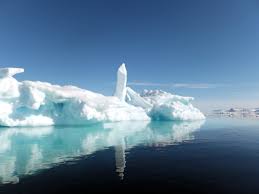 We Charted Arctic Sea Ice for Nearly Every Day Since 1979. We Charted Arctic Sea Ice for Nearly Every Day Since 1979. You'll See a Trend. Arctic sea ice has been in steep decline since the late 1970s, when satellite images were first used to study the region. NASA says that the extent of ice covering Arctic waters has fallen by 13 percent per decade. The 10 lowest ice minimums - measured each September, after the summer thaw - have all been recorded since 2007. Scientists say the disappearance of sea ice is largely a result of climate change, with the Arctic warming at a faster rate than any other region. New York Times
Researchers Have Found Blocks of Polystyrene in Arctic Ice. Researchers on an expedition led by polar explorer Pen Hadow have discovered plastic pollution lying on remote frozen ice floes in the middle of the Arctic Ocean. The discovery shows how far plastic pollution has spread, prompting fears that new plastic waste is flowing into the Arctic as the ice melts due to climate change. The thaw is also releasing plastic pollution long trapped in the frozen ice into the Arctic environment. Canada Journal
Feds Extend Nunavut Geoscience Program. Geoscience in Nunavut, the Northwest Territories, and Yukon has received a $7.4 million financial boost that will allow existing research in geoscience to continue in the three territories. In Nunavut, CanNor has earmarked $2,672,335 towards geoscience projects focusing on mapping, permafrost infrastructure and seabed analysis, along with the development and promotion of geosciences in Nunavut. Nunatsiaq Online
Canada Naval Chief Underlines Challenges of "New Oceanic Age." A high-ranking commander of the Canadian Navy has proclaimed the advent of "a new oceanic age" characterized by surging maritime commerce, global power politics, the impact of climate change in the Arctic region, and the challenges for the United States especially because of China's expanding involvement. Rear Admiral Art McDonald, Commander of Maritime Forces Pacific, Royal Canadian Navy, presented a sweeping overview of developments on the world's oceans during a keynote address to the Sept. 19-21 Annual Conference of the Association of Canadian Port Authorities in Vancouver. He singled out the Arctic as presenting such a case, adding: "Indeed, for the first time in human history, we are on the cusp of acquiring a new ocean." American Journal of Transportation
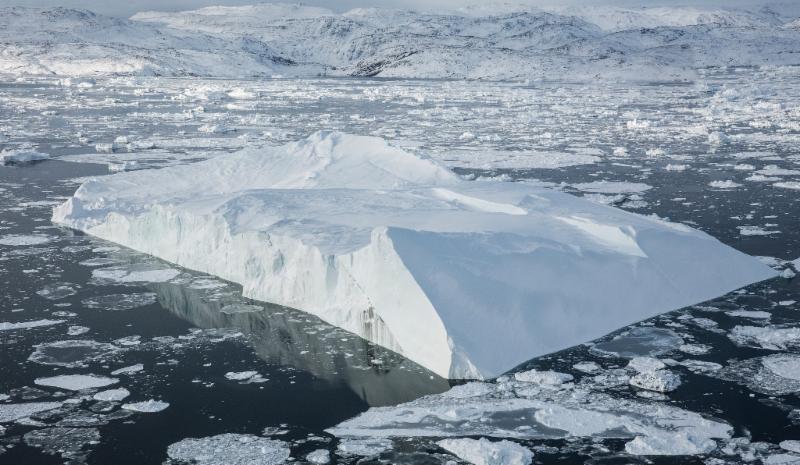 Sea Level Pressure May Have Slowed Arctic Ice Melt, but Region is Still in Trouble. Sea Level Pressure May Have Slowed Arctic Ice Melt, but Region is Still in Trouble. This year's Arctic sea ice extent, while higher than previous years, is still much lower than it has been in the past.While this year's Arctic sea ice melt was less than previous years, the low levels are still a major cause for concern. A group of researchers from the National Snow and Ice Data Center (NSIDC) found that the sea ice extent at the end of the annual summer melt measured 1.79 million square miles. That is 610,000 square miles below the 1981-2010 average for the same date, and it is 193,000 square miles above 2016's minimum. Even so, the ice levels still measured as the eight lowest in the 38-year satellite record. Science Recorder
The Science of the Sikuliaq: Research Vessel Explores Ocean's Food Chain. Carin Ashjian sees the big picture. This is her job as a chief scientist and one she does well, her colleagues say. To be chief scientist means Ashjian, 57, is the lead on answering the research question, "What happens at the shelf break of the Beaufort Sea and how does it affect the Arctic food web?" Ashjian, from Woods Hole Oceanographic Institution, led a team of 20 scientists on the R/V Sikuliaq this past month in the Beaufort Sea in order to answer that question. She was the major author on the research proposal to the National Science Foundation, which ultimately funded the work. Fairbanks Daily News-Miner
Climate Change Scientists Fight for Funding to Save High Arctic Lab. Some of Canada's leading climate change scientists are fighting to keep the country's northernmost research station in operation. The Polar Environment Atmospheric Research Laboratory (PEARL) in Eureka, Nunavut, tracks atmospheric data that no other research station can, given its High Arctic latitude, only 1,110 kilometers from the North Pole. There, researchers study ozone depletion, and how the thawing Arctic is contributing to climate change, as well as other polar science. CBC News
|
|
Future Events
** New this week ** Arctic Environmental Futures: Nexus of Science, Policy and Operations, September 29, 2017 (Washington, DC USA). Rapid climate and environmental change in the Arctic is shaping the critical region in unprecedented ways, while increasing attention toward global connections. How do Arctic environmental futures affect science, policy and operations in this region and beyond? How can scientists and policymakers work together to define and answer the most pressing questions? Leading Arctic scientists, policymakers and emergency response officials will present and discuss the most recent research on Arctic change, extreme weather, indigenous communities, and emergency response operations. This event is sponsored by the Wilson Center.
** New this week ** Marine Research in the North Pacific: The Changing Landscape for Fisheries, Ecosystems, and Science Funding in Alaskan Waters, September 29, 2017 (Washington, DC USA). Betsy Baker, Executive Director of the North Pacific Research Board (NPRB) based in Anchorage, AK, will discuss current research supporting fisheries and integrated ecosystem information needs in the Arctic, Bering Sea and Gulf of Alaska. Speaking from her current work directing a science funding non-profit, past experience as a professor of international, ocean, and environmental law, and her collaborations with scientists, federal agencies, Arctic Council working groups and Permanent Participants, she will discuss emerging challenges and opportunities for the Arctic research community. This event is part of the ARCUS DC Arctic Research Seminar Series.
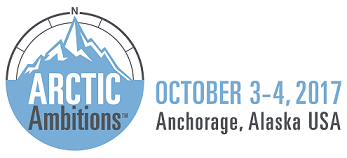 Arctic Ambitions VI: International Business Conference & Trade Show, October 3-4, 2017 (Anchorage, Alaska USA). Arctic Ambitions VI: International Business Conference & Trade Show, October 3-4, 2017 (Anchorage, Alaska USA). For the 6th year in a row, World Trade Center Anchorage will host the Arctic Ambitions Conference - an event focused on trade, commerce, and investment in the region. This year, the theme of the conference is New Arctic Realities: The Path Forward. With this theme, the following areas will be highlighted: transportation, technology and innovation, infrastructure development, natural resource exploration and production, international trade opportunities, finance and investment, pan-Arctic commerce, and the new political climate toward Arctic development under the Trump Administration.
** New this week ** Arctic Observations, Data and Society: Using Systems Science and Mediation to Enhance Information Flow for Sustainability, October 4, 2017 (Washington, DC USA). Recent environmental and social change has resulted in an increased focus on the Arctic region by governments and the general public. Much of this interest is generated in the context of the concept of sustainability and the global implications of a changing Arctic. Concurrently, there is a recognition by researchers, Arctic communities and decision makers that Arctic observations and data are not readily available in a usable form to all who need them. This talk provides a review of Arctic data as a complex system of interrelated data resources, technology, funding, human and machine actors and other components that can be seen as an "ecosystem." To improve the flow of information will require more than simply making data easier to discover and access in its raw form. New approaches to mediating or transforming data to meet the needs of different user communities are needed and increasingly possible. Enhancing the system will require a broad commitment to dialogue across different communities of practice and a recognition of the need to conceive of data and related technologies as infrastructure that can interoperate from local to global scales. The talk concludes with a review of existing and emerging projects and programs focused on Arctic data. This event is part of the ARCUS DC Arctic Research Seminar Series.
A New Ocean in the North: Perils and Possibilities, October 5, 2017 (Washington, DC USA). At 3:30pm in Russell Senate Office Building there will be a congressional briefing of the Helsinki Commission, Senate Arctic Caucus, Senate Oceans Caucus, and Arctic Working Group in the House of Representatives, entitled "A New Ocean in the North: Perils and Possibilities." Topics discussed at this briefing will include U.S. Arctic infrastructure requirements in order to make the most of an emerging region as well as how other Arctic nations have invested in the Arctic. Panelists include: Ms. Julie Gourley, Senior Arctic Official, U.S. Department of State; Ms. Iina Peltonen, First Secretary, Embassy of Finland in the United States; Mr. Michael F. McAllister, Rear Admiral, U.S. Coastguard; Ms. Melanie Bahnke, President and CEO, Kawerak, Inc.; and, Mr. Mark Smith, CEO, Vitus Energy.
5th Northern Oil and Gas Research Form, October 11-13, 2017 (Anchorage, Alaska USA). The United States is hosting the 5th Northern Oil and Gas Research Forum from October 11-13, 2017, in Anchorage, Alaska. This meeting will feature current research and highlight information needs for management of petroleum activities in the US and Canadian Arctic. Abstracts for poster presentations on research and how research is used in management actions are presently being solicited. Please visit the Forum's website (here) for additional details. Deadline for abstract submission is September 10. There is no registration fee for the Forum. Please use the website link above for information on registration, agenda, lodging and transportation.
2017 Arctic Circle Assembly, October 13-15, 2017 (Reykjavik, Iceland). The annual Arctic Circle Assembly is the largest annual international gathering on the Arctic, attended by more than 2000 participants from 50 countries. The Assembly is held every October at the Harpa Conference Center and Concert Hall and is attended by heads of states and governments, ministers, members of parliaments, officials, experts, scientists, entrepreneurs, business leaders, indigenous representatives, environmentalists, students, activists and others from the growing international community of partners and participants interested in the future of the Arctic.
5th Alaska Native Health Research Conference, October 16-18, 2017 (Anchorage, Alaska USA). This conference provides a forum to share current health research occurring in Alaska with Alaska Native people. The theme of the conference is "Strengthening Communities through Research for a Healthier Tomorrow". Health topics to be discussed include aging, suicide, health risks associated with added sugar in the diet, infectious disease, and cancer. The conference aims to engage attendees in a fruitful dialogue on the research currently happening in communities, and how to improve research so that it is respectful of and reflects the needs of the Alaska Native people and their communities. We will also identify the areas where research is not being conducted and discuss ways to address these research gaps. This event is sponsored by The Alaska Native Tribal Health Consortium (ANTHC) Health Research Review Committee.
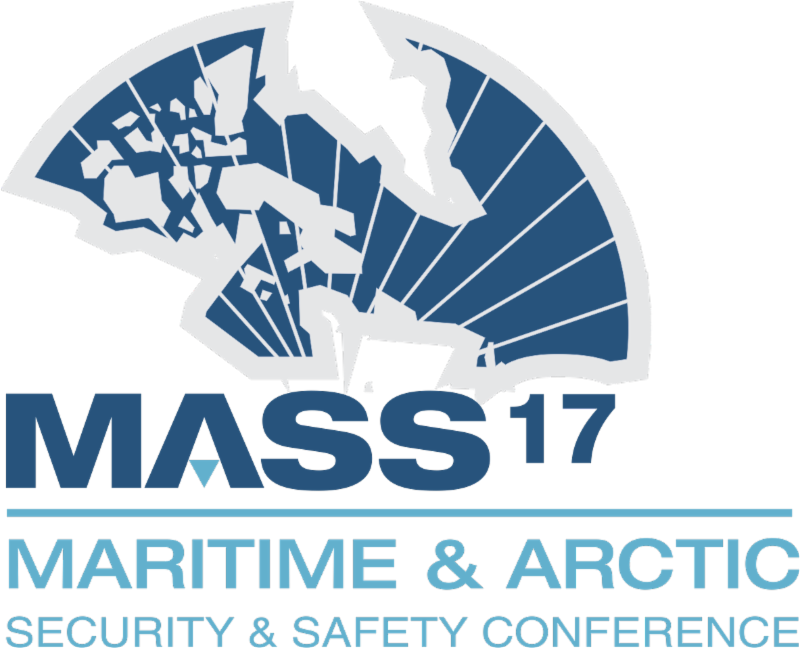 Maritime & Arctic Security & Safety Conference (MASS17) "Arctic Horizons," October 31- November 1, 2017 (Newfoundland & Labrador Canada). Now in its fifth year, MASS has gained an international reputation as a must-attend event to gain a wide perspective on challenges, opportunities and policies related to the Arctic and North Atlantic maritime environments. The aim of this Government of Canada and the Government of Newfoundland and Labrador supported international conference is to promote stakeholder collaboration, technological innovation, harsh environment research & development, and world-class education efforts that are contributing to both Maritime and Arctic issues. This two day conference will draw a diverse group of speakers and attendees representing government, military, Canadian and U.S. Coast Guard, industry, academic leaders, Northern Leaders, research and other key stakeholders. We hope you can join us to be a part of this important dialogue Maritime & Arctic Security & Safety Conference (MASS17) "Arctic Horizons," October 31- November 1, 2017 (Newfoundland & Labrador Canada). Now in its fifth year, MASS has gained an international reputation as a must-attend event to gain a wide perspective on challenges, opportunities and policies related to the Arctic and North Atlantic maritime environments. The aim of this Government of Canada and the Government of Newfoundland and Labrador supported international conference is to promote stakeholder collaboration, technological innovation, harsh environment research & development, and world-class education efforts that are contributing to both Maritime and Arctic issues. This two day conference will draw a diverse group of speakers and attendees representing government, military, Canadian and U.S. Coast Guard, industry, academic leaders, Northern Leaders, research and other key stakeholders. We hope you can join us to be a part of this important dialogue
 Polar Law Symposium 2017 and Rovaniemi Arctic Spirit, November 13-16, 2017 (Rovaniemi, Finland). The purpose of the Polar Law Symposium is to examine, in detail, the implications of the challenges faced by the Polar Regions for international law and policy and to make recommendations on appropriate actions by states, policy makers and other international actors to respond to these emerging and re-emerging challenges. The Rovaniemi Arctic Spirit Conference is integrated with the Polar Law Symposium, which will be organized by the Northern Institute for Environmental and Minority Law at the Arctic Center of the University of Lapland. Polar Law Symposium 2017 and Rovaniemi Arctic Spirit, November 13-16, 2017 (Rovaniemi, Finland). The purpose of the Polar Law Symposium is to examine, in detail, the implications of the challenges faced by the Polar Regions for international law and policy and to make recommendations on appropriate actions by states, policy makers and other international actors to respond to these emerging and re-emerging challenges. The Rovaniemi Arctic Spirit Conference is integrated with the Polar Law Symposium, which will be organized by the Northern Institute for Environmental and Minority Law at the Arctic Center of the University of Lapland.
** New this week ** Arctic Research Seminar with Courtney Carothers and Laura Zanotti: In a Climate of Change: Co-producing Knowledge and Community Researcher Relationships in the Leadership and Strength Project in Utqiagvik, Alaska, November 30, 2017 (Washington, DC USA). Courtney Carothers is an associate professor of fisheries in the College of Fisheries and Ocean Sciences at the University of Alaska Fairbanks. She is an environmental anthropologist currently researching how fishery systems are being remade by enclosure and privatization processes and the total environment of change facing Arctic Indigenous communities. Her work explores human-environment relationships, cultural values, equity, and well-being. She has co-edited two books and published over 30 articles and book chapters on these topics. She currently serves on a number of boards and working groups, including: the SEARCH (Study of Environmental Arctic Change) Science Steering Committee, the North Pacific Research Board Science Panel, the Alaska Sustainable Salmon Fund Expert Panel, the State of Alaska's Salmon and People. This event is part of the ARCUS DC Arctic Research Seminar Series.
AGU Fall Meeting, December 11-15, 2017 (New Orleans, LA USA). Fall Meeting is the largest and preeminent Earth and space science meeting in the world. The 2017 Fall Meeting will take place in New Orleans, Louisiana, offering attendees the chance to discover a new location that features world renowned cuisine, music, arts and culture, and provides access to vital scientific ecosystems. Fall Meeting will offer a unique mix of more than 20,000 oral and poster presentations, a broad range of keynote lectures, various types of formal and informal networking and career advancement opportunities, scientific field trips around New Orleans, and an exhibit hall packed with hundreds of exhibitors.
ArcticNet invites the global Arctic research community to Arctic Change 2017! This conference will bring together Arctic researchers and students with Inuit, Northerners and government, industry and NGO stakeholders. The world's foremost Arctic scientists will present research findings and discuss impacts of climate change and modernization. With 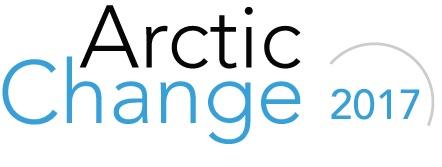 over 1500 participants expected, Arctic Change 2017 will be one of the largest trans-sectoral international Arctic research conferences held in Canada. We welcome students and early career researchers to participate in "Student Day" at the start of the Conference. See an excerpt from last year: ArcticNet ASM2016. over 1500 participants expected, Arctic Change 2017 will be one of the largest trans-sectoral international Arctic research conferences held in Canada. We welcome students and early career researchers to participate in "Student Day" at the start of the Conference. See an excerpt from last year: ArcticNet ASM2016.
ISAR-5 Fifth International Symposium on Arctic Research, January 15-18, 2018 (Tokyo, Japan).The fifth ISAR has been planned at the recommendation of the science steering committee of ISAR-4, which was held in Toyama, Japan in April 2015. The fifth ISAR will be devoted to discussions on environmental changes in the Arctic and their regional and global implications, to seek additional international scientific collaboration in this area by gathering, synthesizing and sharing information related to these changes occurring in the Arctic. Special emphasis will be placed on the fields of the social sciences and humanities, which were not included in the previous ISARs. ISAR-5 will consist of general sessions and special sessions. The general sessions will address the following topics: atmosphere; ocean and sea ice; rivers, lakes, permafrost, and snow cover; ice sheets, glaciers, and ice cores; terrestrial ecosystems; marine ecosystems; geospace; policies and economy; and social and cultural dimensions. Special sessions will be solicited on cross-cutting themes.
2018 Arctic Frontiers: Connecting the Arctic, January 21-26, 2018 (Tromso, Norway). Arctic Frontiers is an international arena on sustainable development in the Arctic. The conference addresses the management of opportunities and challenges to achieve viable economic growth with societal and environmental sustainability. Arctic Frontiers brings academia, government and business together to create a firmer foundation for decision-making and sustainable economic development in the Arctic. Join the Arctic Frontiers conference preparing the new Arctic future. The conference takes place the fourth week of January in the Norwegian city of Tromsø, known as the Gateway to the Arctic.
Alaska Marine Science Symposium, January 22-26, 2018 (Anchorage, Alaska.)
The Alaska Marine Science Symposium (AMSS) is Alaska's premier marine research conference. For over 20 years, it has brought together scientists, educators, resource managers, students, and the public to discuss marine research conducted in Alaskan waters. Over 700 people attend this 4-day long conference held annually in January. Each day of the conference highlights Alaskan marine ecosystems: Arctic (Tuesday), Bering Sea & Aleutian Islands (Wednesday), and the Gulf of Alaska (Thursday). Research topics discussed range from ocean physics, fishes and invertebrates, seabirds, marine mammals, to local traditional knowledge. Website for 2018 meeting is here.
Alaska Forum on the Environment, February 12-16, 2018 (Anchorage, Alaska)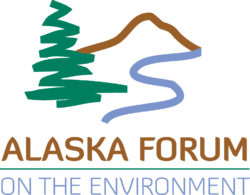 . AFE is a statewide gathering of environmental professionals from government agencies, non-profit and for-profit businesses, community leaders, Alaskan youth, conservationists, biologists and community elders. The diversity of attendees sets this conference apart from any other. The 2018 event will be our 20th year providing a strong educational foundation for all Alaskans and a unique opportunity to interact with others on environmental issues and challenges. . AFE is a statewide gathering of environmental professionals from government agencies, non-profit and for-profit businesses, community leaders, Alaskan youth, conservationists, biologists and community elders. The diversity of attendees sets this conference apart from any other. The 2018 event will be our 20th year providing a strong educational foundation for all Alaskans and a unique opportunity to interact with others on environmental issues and challenges.
The Effects of Climate Change on the World's Oceans, June 4-8, 2018 (Washington, DC USA).
The 4th International Symposium will bring together experts from around the world to better understand climate impacts on ocean ecosystems - and how to respond. The event is hosted by a variety of groups including International Council for the Exploration of the Sea (ICES), North Pacific Marine Science Organization (PICES), Intergovernmental Oceanographic Commission of UNESCO (IOC), and Food and Agriculture Organization of the United Nations (FAO).
 POLAR 2018, June 15-27, 2018 (Davos, Switzerland).POLAR2018 is a joint event from the Scientific Committee on Antarctic Research (SCAR) and the International Arctic Science Committee (IASC). The SCAR meetings, the ASSW and the Open Science Conference will be hosted by the Swiss Federal Institute for Forest, Snow and Landscape Research WSL under the patronage of the Swiss Committee on Polar and High Altitude Research. The WSL Institute for Snow and Avalanche Research SLF is organizing POLAR2018. POLAR 2018, June 15-27, 2018 (Davos, Switzerland).POLAR2018 is a joint event from the Scientific Committee on Antarctic Research (SCAR) and the International Arctic Science Committee (IASC). The SCAR meetings, the ASSW and the Open Science Conference will be hosted by the Swiss Federal Institute for Forest, Snow and Landscape Research WSL under the patronage of the Swiss Committee on Polar and High Altitude Research. The WSL Institute for Snow and Avalanche Research SLF is organizing POLAR2018.
17th International Congress of Circumpolar Health (ICCH17), August 12-15, 2018 (Copenhagen, Denmark). The ICCH congresses are held every third year in different locations in the circumpolar area and represent the largest scientific meetings worldwide on circumpolar health. The ICCH congresses serve as the primary source of information exchange and scholarly communication in issues relating to circumpolar health. More than 750 participants generally register and participate in each Congress, and more than 400 scientific papers or posters are usually presented.
Arctic Biodiversity Congress, October 9-11, 2018 (Rovaniemi, Finland). The second Arctic Biodiversity Congress is hosted by the Conservation of Arctic Flora and Fauna (CAFF), the biodiversity working group of the Arctic Council, and the Ministry of the Environment, Finland. The second Arctic Biodiversity Congress will build on the success of the first Congress, held in 2014 in Trondheim, Norway, and will bring together scientists, policymakers government officials, Indigenous representatives, Traditional Knowledge holders, industry, non-governmental organizations, and others to promote the conservation and sustainable use of Arctic biodiversity.
|
|

  
4350 N. Fairfax Drive, Suite 510
Arlington, VA 22203, USA
External links in this publication, and on the USARC's World Wide Web site ( www.arctic.gov) do not constitute endorsement by the US Arctic Research Commission of external Web sites or the information, products or services contained therein. For other than authorized activities, the USARC does not exercise any editorial control over the information you may find at these locations. These links are provided consistent with the stated purpose of this newsletter and the USARC Web site.
|
|
|
|
|
|
|
|
|